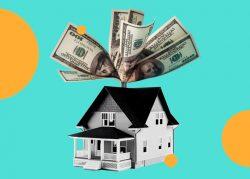First, let’s get one myth out of the way: Home prices did not rise faster in the suburbs than in urban areas when the pandemic hit. Urban home values outperformed their suburban counterparts for the first 15 months of Covid, through July 2021, as they had since the beginning of 2013.
But in the past nine months, that trend has reversed, according to a report by Zillow. Since July, the typical suburban home has gained $66,500 in value, versus $61,700 for the typical urban home.
What about the notion that the pandemic caused families to seek more square footage and outdoor space? While those are associated with suburbs, they are also common in the nation’s urban areas, most of which are not densely populated or packed with residential towers. Think, Cincinnati. Or most of Brooklyn, for that matter.
Work-from-home did untether many Americans from city centers, but for the first year-plus of the pandemic, most employees did not know how long remote work would last and were unwilling to bet their home purchases on it. That sentiment might have shifted since last summer.
Zillow economist Nicole Bichaud said limited inventory could explain suburbia’s recent home price appreciation. There could also be an opportunity now for buyers in urban areas.
“That could mean competition for homes will be lighter near city centers this home shopping season, something we haven’t been able to say for nearly a decade,” Bichaud said.
Read more



While suburban home values are now growing faster than urban ones, both are still growing. Additionally, urban homes could retake the crown soon; in each of 2022’s first three months, the gap has shrunk.
Not every city is created equal in the fight between the suburban and urban zip codes. No metro area has seen a starker contrast than San Francisco, where the annual growth in suburban areas since July 2021 has outpaced the growth in urban areas by more than $85,000. No other city’s differential came within $50,000 of that.
Other metro areas to rank in the top 10 of difference between suburban and urban home value growth include Miami-Fort Lauderdale ($34,000) and Los Angeles ($32,000).
Despite the differences, nearly all homeowners had reason to celebrate last year, as housing prices soared. In Zillow’s analysis, the typical value of a home rose 19.6 percent nationally to $321,634, an increase of $52,667 from 2020.
Homes actually out-earned their owners: It was the first time Zillow recorded that the increased value of a typical home was greater than inflation-adjusted median pretax income.
